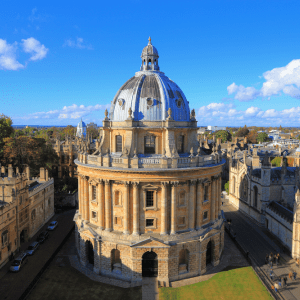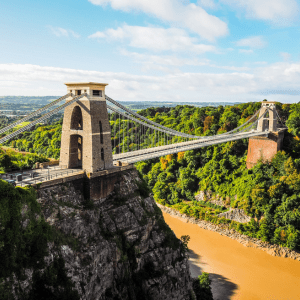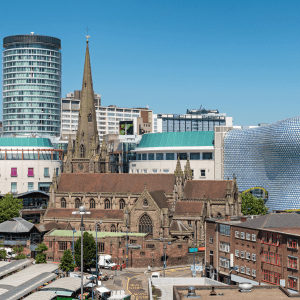# let's Grow Your Hand
Study in the United Kingdom Your Roadmap to Success!
Navigate Your Path to Success - Expert Guidance for Studying Abroad in the Land of Opportunities!
Why Study in United Kingdom?
United Kingdom consistently ranks high in global education indices, ensuring that students receive top-notch education and exposure to a multicultural society. The emphasis on innovation and technological advancement makes United Kingdom institutions leaders in various fields.
Academic Excellence
Benefit from world-renowned universities and cutting-edge research, ensuring a top-tier education that opens doors globally.
Diverse Culture
Immerse yourself in a melting pot of cultures, ideas, and perspectives, fostering personal growth and a truly enriching experience.
Career Opportunities
Gain access to a dynamic job market with ample internship and post-graduation employment opportunities, setting the stage for a successful career.
Innovation Hub
Join a country at the forefront of innovation and technology, offering a stimulating environment for creativity and entrepreneurial pursuits.
Quality of Life
Experience a high standard of living, excellent healthcare, and a variety of recreational activities, making the United Kingdom a well-rounded and desirable destination for international students.
The Transformative Benefits of Choosing to Study
Discover the world, expand your mind! Choose to study abroad for top-notch education, cultural immersion, and personal growth. Your journey to global success starts here!
Choose Your Desired Courses
Discover the world, expand your mind! Choose to study abroad for top-notch education, cultural immersion, and personal growth. Your journey to global success starts here!
Choose Your Interested Location in UK
Discover academic excellence amidst stunning landscapes. Study in UK for a vibrant cultural experience, renowned universities, and opportunities in tech and entertainment industries.



Oxford
- Phone:+1 (859) 254-6589
- Email:info@example.com



Bristol
- Phone:+1 (859) 254-6589
- Email:info@example.com



Liverpool
- Phone:+1 (859) 254-6589
- Email:info@example.com



Birmingham
- Phone:+1 (859) 254-6589
- Email:info@example.com



Glasgow
- Phone:+1 (859) 254-6589
- Email:info@example.com



Ohio
- Phone:+1 (859) 254-6589
- Email:info@example.com



Georgia
- Phone:+1 (859) 254-6589
- Email:info@example.com



North Carolina
- Phone:+1 (859) 254-6589
- Email:info@example.com
Admission requirements for studying in United Kingdom
Planning to study in United Kingdom? Let us help you get started with the basic admission requirements that you will need.
Preparing for Examinations
Pursuing a course in the United Kingdom begins with competitive and rigorous exams such as GRE/GMAT for postgraduate studies and IELTS or TOEFL for English proficiency. Some programs do not require GRE/GMAT. Thorough preparation is vital as these exams significantly influence university admissions.
University Application Process
The application process involves submitting academic transcripts, letters of recommendation, a statement of purpose, and exam scores. Meeting application deadlines and following specific university guidelines are critical to success.
Figuring Out Your Finances
A full-time program in the US can cost up to ₹ 70Lacs. Planning your finances is essential, considering options like scholarships and loans, though the latter may come with high-interest rates.
Visa Process
Applying for a student visa entails presenting the necessary documentation, attending an interview, and paying a fee. It is advisable to start this process early to avoid delays.
Booking Your Travel
Early travel bookings are recommended, as costs can be high, especially during peak seasons. Consider budget airlines and travel packages to minimize expenses.
Finalizing Your Stay
The cost of accommodation varies based on location and preferences. Exploring housing options early allows for a more budget-friendly selection, whether choosing university housing or private rentals.
How You Can Manage expenses while studying in the United Kingdom
Our programs offer financial aid and the chance to study in the United Kingdom at low cost. Here's how international students in the United Kingdom manage their living expenses while studying there.
Opting for hybrid programs, which combine online and in-person classes, can offer significant cost savings. These programs allow students to complete a portion of their coursework remotely, reducing expenses associated with accommodation, transportation, and on-campus living.
The flexibility of hybrid programs enables students to strike a balance between academic pursuits and managing their budget effectively.
United Kingdom is home to numerous institutions and organizations that offer a wide range of scholarships for international students. These scholarships can cover tuition fees, living expenses, or a combination of both. It is crucial for students to research and apply for available scholarships well in advance.
Many academic institutions and governmental bodies provide financial aid based on merit, need, or specific criteria related to the student’s field of study. Applying for scholarships can significantly alleviate the financial strain of studying abroad.
Taking out student loans is a common method for funding education in United Kingdom. Financial institutions, both in Ireland and in the student’s home country, often provide loans specifically tailored for international students. Before opting for a loan, it is essential to thoroughly understand the terms and conditions, interest rates, and repayment plans.
Students should explore government-sponsored loan programs and private financial institutions to identify the most suitable loan options that align with their financial capacity.
United Kingdom allows international students to work part-time during their studies. Engaging in part-time employment not only provides students with valuable work experience but also contributes to covering living expenses. Most students work in sectors such as retail, hospitality, or on-campus roles.
It is important, however, to strike a balance between work and academics, ensuring that employment commitments do not compromise the quality of education.


























Everything You Need To Know About United Kingdom
The United Kingdom, commonly known as the UK, stands as a sovereign country in northwestern Europe, comprising four constituent nations: England, Scotland, Wales, and Northern Ireland. Each region boasts a unique culture and identity, contributing to the overall diversity and richness of this nation.
Home to a population exceeding 66 million people, the UK serves as a melting pot of cultures from across the globe. Whether you're drawn to bustling cities like London and Edinburgh or the idyllic landscapes of countryside villages such as Bath and Oxfordshire, the UK offers something for everyone within its vibrant scenery.
Rich in historical significance, the UK showcases an impressive array of landmarks that annually attract millions of visitors. From iconic structures like Stonehenge and Big Ben to historical sites like Buckingham Palace and Edinburgh Castle, the tales embedded in every brick are sure to captivate history enthusiasts.
The culinary scene in the UK is characterized by hearty dishes like fish and chips, as well as the tradition of afternoon tea featuring scones and clotted cream. The British influence extends globally with popular Indian curries and beloved desserts like sticky toffee pudding.
The transportation infrastructure is well-developed, featuring an extensive network of trains connecting major cities and efficient public buses catering to both locals and tourists.
For those inclined towards the arts, the UK offers art galleries housing masterpieces by renowned artists such as Turner or Constable, and world-class theaters in London's West End showcasing plays by Shakespeare and thrilling musicals.
Sports hold a significant place in British society, with football (soccer), cricket matches at Lord's Cricket Ground, and tennis tournaments at Wimbledon offering year-round excitement for sports enthusiasts.
Characterized by stunning landscapes, a captivating history, and diverse cultural experiences, the United Kingdom beckons explorers with endless opportunities. Pack your bags and prepare to uncover the secrets and delights of this extraordinary nation.
The history of the United Kingdom is a rich tapestry woven with triumphs and challenges, spanning centuries of fascinating events. From ancient times to modern day, this island nation has seen it all.
It all began in prehistoric times, when early settlers made their homes in what is now known as the UK. The Romans arrived in AD 43 and left their mark on the land with impressive structures like Hadrian's Wall. Fast forward to medieval times, where castles and knights ruled the landscape.
The Tudor period brought about significant changes under monarchs like Henry VIII and Elizabeth I. This era saw exploration, religious upheaval, and cultural renaissance. The British Empire reached its zenith during the Victorian era, expanding across continents and shaping global politics.
World War I brought immense loss to Britain but also marked a turning point towards social change. World War II solidified Britain's place on the world stage as they stood strong against Nazi aggression.
Today, the United Kingdom stands as a resilient nation with a storied past that continues to shape its present and future endeavors.
The economy of the United Kingdom is one of the largest and most advanced in the world. It is a highly developed market economy with strong industries in sectors such as finance, manufacturing, and services.
Finance plays a major role in the UK's economy, with London being one of the world's leading financial centers. The city is home to numerous banks, insurance companies, and investment firms. The London Stock Exchange is also a key player in global financial markets.
Manufacturing is another important sector in the UK's economy. The country has a long history of producing goods ranging from automobiles to pharmaceuticals. Some well-known British brands include Rolls-Royce, Jaguar Land Rover, and GlaxoSmithKline.
The service industry accounts for a significant portion of the country's GDP as well. This includes areas such as professional services (law, accounting), tourism, retail, and entertainment.
Despite its economic strengths, the UK faces challenges including income inequality and regional disparities. The government continues to implement policies aimed at promoting growth and addressing these issues.
In recent years, Brexit has had an impact on the UK's economy by creating uncertainty for businesses and affecting trade relationships with other countries. However, it remains to be seen how this will play out in the long term.
Overall,the United Kingdom’s diverse and dynamic economy positions it as an influential player on both regional and global levels.
The government of the United Kingdom is a constitutional monarchy with a parliamentary democracy. It is a unique system that combines elements of both monarchy and democracy.
At the head of the government is the monarch, currently Queen Elizabeth II. However, her role is largely ceremonial, and she does not have much political power. The real power lies with the elected officials in Parliament.
The UK Parliament consists of two houses: the House of Commons and the House of Lords. The House of Commons is made up of Members of Parliament (MPs) who are elected by the public in general elections. They represent different political parties and debate on various issues to make decisions.
The Prime Minister, chosen from among MPs, leads the government and has significant authority over policy-making and decision-making processes. The Prime Minister appoints ministers to form a cabinet to assist in governing specific areas such as finance, defense, health, etc.
Laws are passed through a legislative process involving both houses of parliament before receiving royal assent from the monarch to become law. This system ensures checks and balances within government operations.
While there may be debates and disagreements within British politics like any other country's governance structure allows for fair representation across all sectors.
The population of the United Kingdom has been steadily increasing over the years. As of 2021, it is estimated to be around 66 million people. This makes it the third most populous country in Europe, after Germany and France.
One interesting aspect of the UK's population is its diversity. The country has a long history of immigration, with people from all over the world choosing to make the UK their home. This has resulted in a multicultural society, where different ethnicities and cultures coexist.
London, the capital city, is especially known for its cosmopolitan atmosphere and diverse population. It is often referred to as a "melting pot" due to its mix of different nationalities and backgrounds.
In terms of age distribution, like many developed countries, the UK also faces an aging population. People are living longer thanks to advancements in healthcare and quality of life. Consequently, there have been discussions about planning for pension schemes and providing adequate healthcare services for older citizens.
The population dynamics in the United Kingdom reflect its rich history as well as its ability to attract people from all walks of life.
The United Kingdom is known for its rich and diverse culture, shaped by centuries of history and influences from various civilizations. From literature to music, art to fashion, the UK has made significant contributions to global cultural heritage.
One aspect that sets British culture apart is its love for tea. The tradition of afternoon tea remains a quintessential part of British lifestyle, with people across the country taking time out of their day to enjoy a cuppa and some delicious scones or pastries.
In terms of fashion, the UK boasts an eclectic mix of styles. From classic tailoring on Savile Row to edgy streetwear in East London, there's something for everyone. The British are known for their individualistic sense of style and love experimenting with different looks.
When it comes to entertainment, the UK has produced some iconic figures in film, television, theater, and music. From Shakespearean plays at Stratford-upon-Avon to blockbuster movies filmed at historic locations like London's Pinewood Studios, the country offers a vibrant arts scene that caters to all tastes.
Sports also play a major role in British culture. Football (soccer) is undoubtedly the most popular sport in the nation; fans passionately support their favorite teams week after week. Wimbledon tennis tournament and cricket matches are other sporting events that bring people together during summer months.
The UK's multicultural society contributes significantly to its diverse culinary landscape. From traditional fish and chips to Indian curries brought over by immigrants from South Asia – there is truly something for every palate.
Overall,the United Kingdom's unique blend of traditions,culture,and modernity makes it an exciting place filled with opportunities for exploration - both culturally and personally!
Geography plays a significant role in shaping the United Kingdom's diverse landscape. From rolling hills to bustling cities, this country offers a wide array of natural beauty and man-made wonders.
The United Kingdom is made up of four constituent countries: England, Scotland, Wales, and Northern Ireland. Each region boasts its own distinct geography, adding to the country's rich tapestry.
England is known for its picturesque countryside dotted with charming villages and historic landmarks. The iconic White Cliffs of Dover stand tall along its coastline, offering breathtaking views across the English Channel.
Scotland is renowned for its rugged mountains and stunning lochs. The Scottish Highlands provide a dramatic backdrop to some of the world's most beautiful landscapes, including Loch Ness and Ben Nevis, the highest peak in Britain.
Wales showcases an enchanting blend of mountains and valleys. Snowdonia National Park captures the essence of Welsh geography with its towering peaks and sparkling lakes.
Northern Ireland delights visitors with its striking coastal scenery. The Giant's Causeway is a UNESCO World Heritage site that features unique rock formations formed millions of years ago.
In addition to these natural wonders, urban areas like London offer their own distinctive charm amidst skyscrapers and historical landmarks such as Buckingham Palace and the Tower Bridge.
The varied geography within the United Kingdom provides endless opportunities for outdoor activities such as hiking, cycling, or simply exploring scenic landscapes. Whether you prefer bustling city streets or serene rural retreats, there is something for everyone in this geographically diverse nation.
The climate in the United Kingdom is famously unpredictable. You never know if you'll need an umbrella or sunglasses when you step outside! The country experiences a temperate maritime climate, which means mild winters and cool summers. However, there can be significant regional variations in weather patterns.
Rainfall is spread throughout the year, so it's always a good idea to carry an umbrella with you. The western parts of the UK tend to receive more rainfall than the eastern regions. Scotland and Wales have their fair share of misty days, while England enjoys slightly drier conditions.
Winter temperatures rarely drop below freezing point, but snowfall is not uncommon, especially in higher altitudes. Summers are generally mild and pleasant, with average temperatures ranging from 15°C to 25°C (59°F to 77°F). However, heatwaves occasionally occur during July and August.
The UK's proximity to the Atlantic Ocean influences its climate. Warm ocean currents moderate winter temperatures along coastal areas like Cornwall and Devon. On the other hand, northern regions such as Northern Ireland experience cooler temperatures due to cold oceanic currents.
If you're planning a trip to the UK or moving there for studies or work purposes, be prepared for changeable weather conditions throughout the year!
The education system in the United Kingdom is renowned for its high standards and academic excellence. It offers a wide range of educational opportunities for students, both domestic and international.
In the UK, education is compulsory from the ages of 5 to 18. The school system consists of primary schools, secondary schools, and further education colleges. Primary schools cater to children aged 5 to 11, while secondary schools offer education for students aged 11 to 16 or 18.
One unique aspect of the UK's education system is its emphasis on specialization at an early age. Students choose their subjects of interest at age 14 or 16 when they enter Key Stage Four or Five respectively. This allows them to focus on areas where they excel or have a particular passion.
Higher education in the UK is highly regarded globally, with prestigious universities like Oxford and Cambridge leading the way. These institutions are known for their rigorous academic programs and world-class faculty members.
Moreover, there are also many other universities across the country offering a wide range of courses in various fields such as sciences, arts, business, engineering and more.
In terms of international students studying in the UK, it offers a welcoming environment with numerous scholarships available to help offset tuition costs. International students contribute greatly to diversity within classrooms and enhance cultural exchange among peers.
The United Kingdom’s education system provides excellent opportunities for personal growth and intellectual development through its well-rounded curriculum options combined with top-quality higher education institutions. Whether you seek professional qualifications or personal enrichment through learning experiences abroad – pursuing an education in the UK will undoubtedly open doors for your future endeavors!
If you're considering studying in the United Kingdom, it's important to understand the student visa requirements. The UK has a tiered system for visas, and students usually apply for a Tier 4 (General) Student Visa.
To be eligible for a Tier 4 visa, you must have an offer from a licensed sponsor, such as a university or college that is on the Register of Sponsors. You'll also need to demonstrate your proficiency in English and provide evidence that you can support yourself financially during your studies.
The application process involves filling out an online form and paying the necessary fees. You may also be required to attend an interview at your local UK embassy or consulate.
It's worth noting that there are certain restrictions on what you can do while on a student visa. For example, you generally cannot work full-time or access public funds. However, many students are allowed to work part-time during their studies.
Once you've obtained your student visa and arrived in the UK, it's important to familiarize yourself with any additional immigration requirements or conditions imposed by your sponsor institution.
let's Stand Together
Study in the United Kingdom
Find programs that match your eligibility and aspirations then apply with reduced application fees, a free assessment and access to a dedicated advisor.
Latest News
Standards compliant e-business.Phosfluorescently expedite functional products via premium action
items wireless innovation compliant e-business.
Concerned About Expenses? Tips for Managing Your Budget While Studying Abroad
Are you dreaming of studying abroad, immersing yourself in a new culture, and gaining valuable life experiences? The allure of […]
Is Culture Shock Real? Navigating the Uncharted Territories of Studying Abroad
Hey there globetrotters and adventure seekers! Are you ready to embark on a journey that will broaden your horizons, challenge […]
Wondering Where to Begin? How to Choose the Perfect Study Abroad Destination
Are you feeling a little adventurous? Maybe a bit curious to explore the world beyond your campus walls? Well, studying […]
Frequently Asked Questions (FAQs)
Your Go-To Guide for a Smooth Journey to Graduate Success!
The UK boasts world-renowned universities, diverse cultural experiences, and a rich academic heritage. It offers a high-quality education system with a global reputation.
To apply for a student visa, you need an acceptance letter from a UK institution, proof of financial capability, and other supporting documents. Visit the UK government’s official website for detailed visa application procedures.
The UK offers a wide range of courses, but popular ones include business, engineering, computer science, medicine, arts, and social sciences. Research universities and their programs to find the best fit for your interests.
Yes, international students are allowed to work part-time during term and full-time during vacations. However, there are restrictions, and it’s essential to check your visa conditions.
Tuition fees vary depending on the course and institution. On average, undergraduate fees range from £10,000 to £30,000 per year, and postgraduate fees can range from £10,000 to £40,000 per year.
Yes, many UK universities offer scholarships for international students based on academic merit, leadership, or specific criteria. Check with your chosen institution’s scholarship programs.
Living costs vary depending on the location, but on average, students should budget around £12,000 to £15,000 per year for accommodation, food, transport, and other expenses.
International students studying for more than six months are eligible for the National Health Service (NHS). It’s important to register with a local GP and understand how the healthcare system works.
Typically, you need to complete an online application, submit academic transcripts, letters of recommendation, a personal statement, and, for some courses, attend an interview. Deadlines vary, so check with each university.
Yes, there are options to stay in the UK after completing your studies, such as the Post-Study Work Visa (PSW) or applying for a work visa. Explore the latest immigration policies for international graduates.
Useful Links
Subscribe Now
Don’t miss our future updates! Get Subscribed Today!
©2024. Geniustudy. All Rights Reserved.




